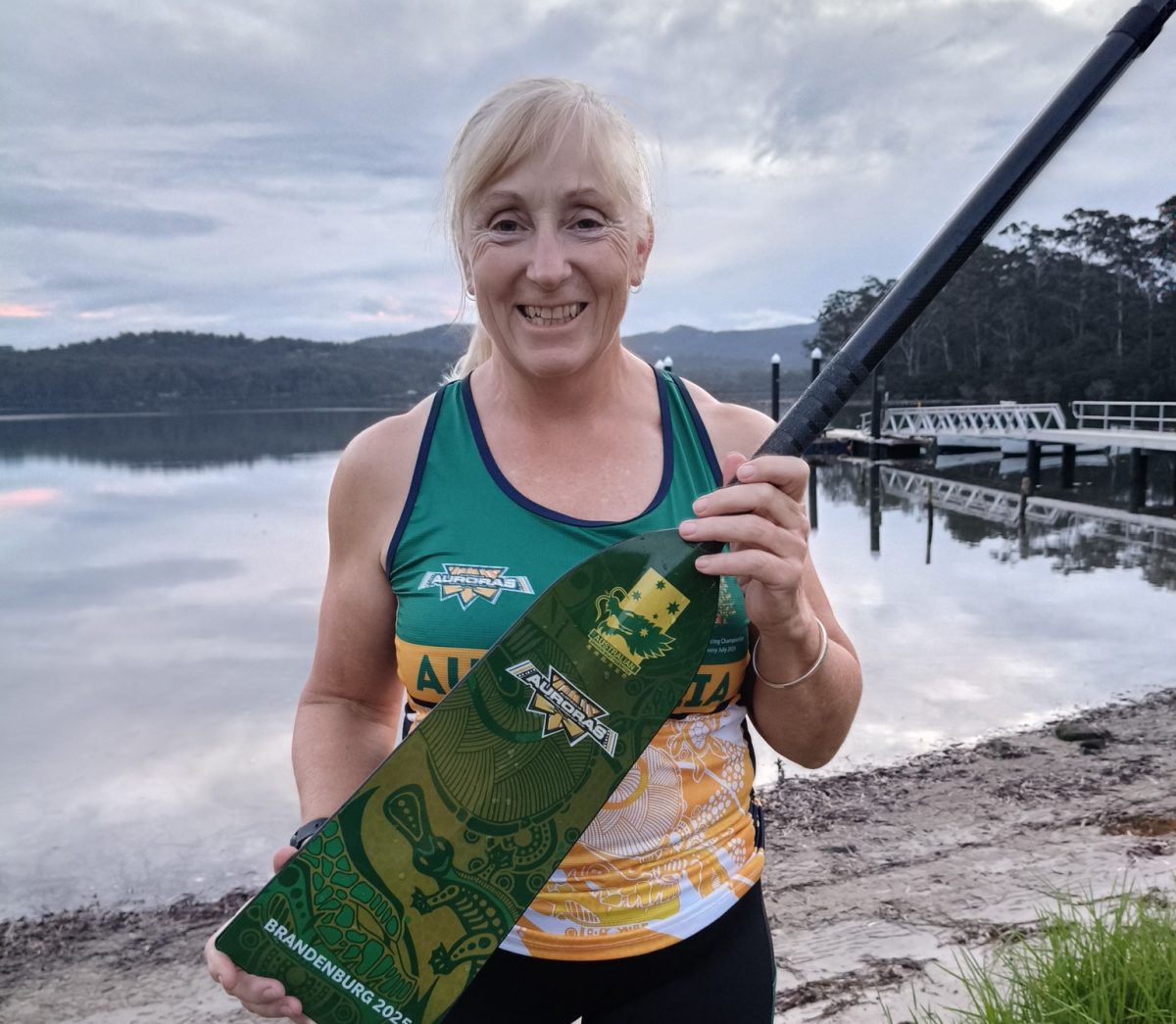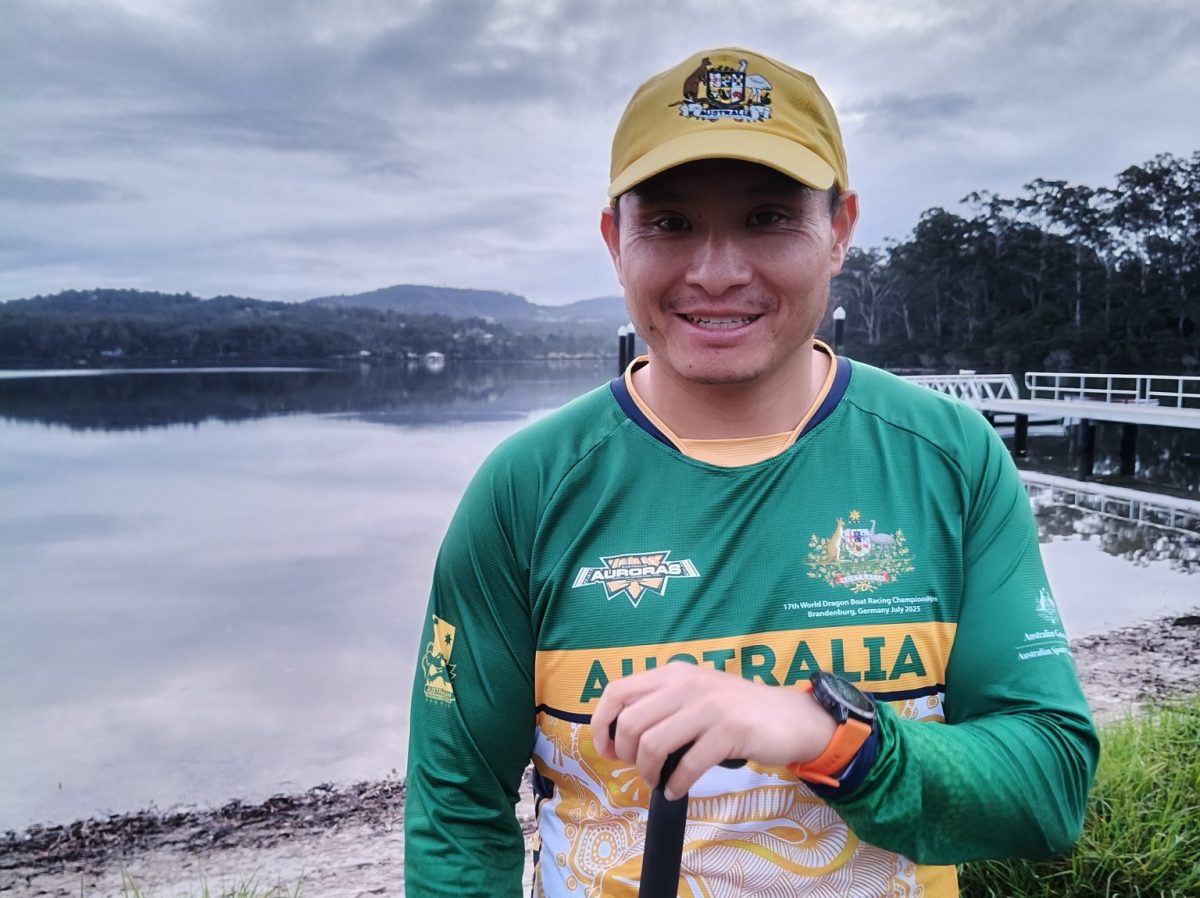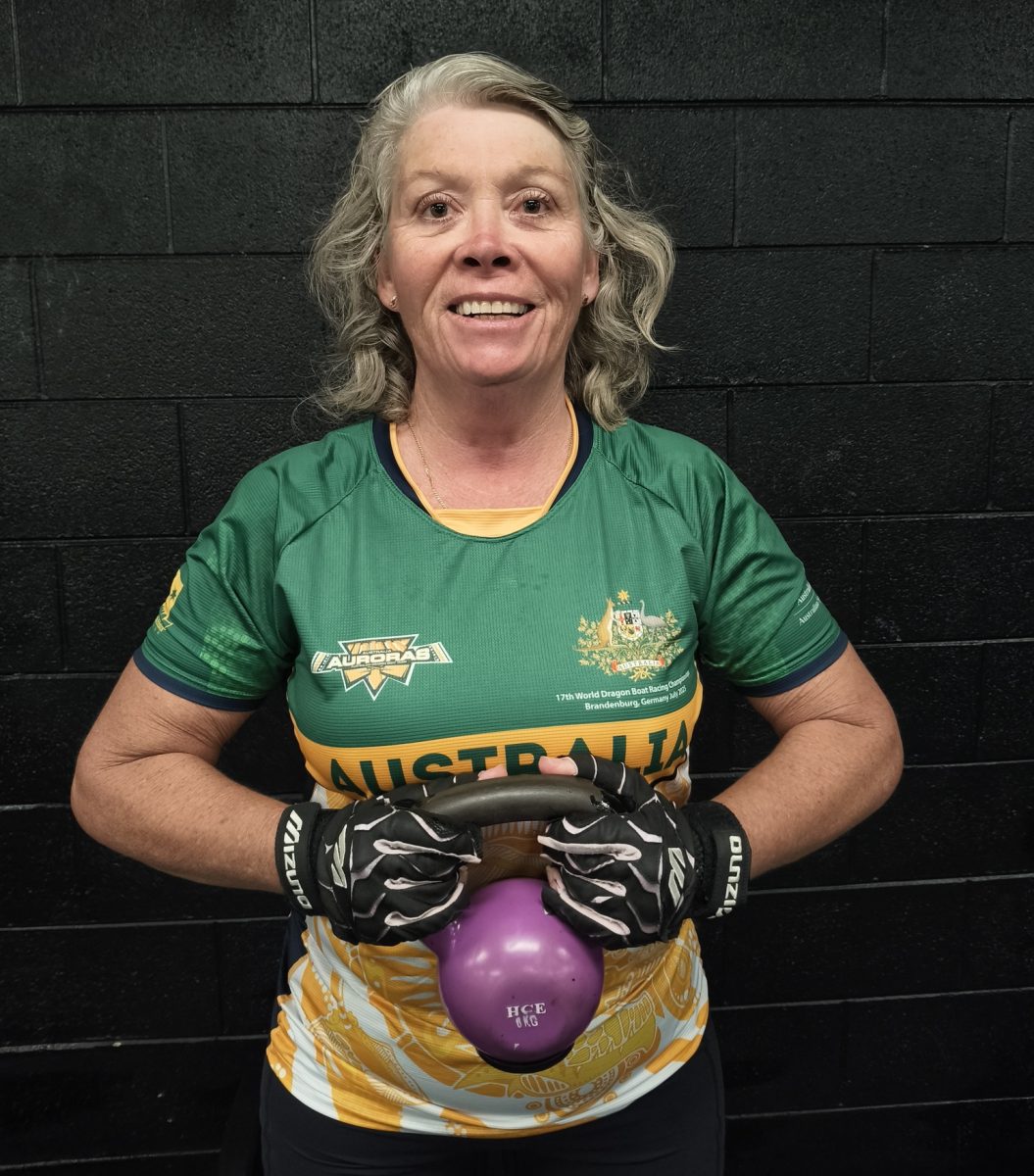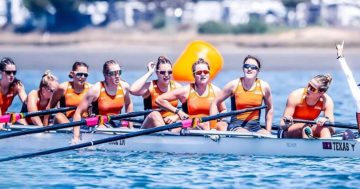
Gillian McCallum is one of the members of the 380-strong Auroras, Australia’s national dragon boat team. Photo: Supplied.
Four members of the Merimbula Water Dragons will be in Germany this month representing Australia in the World Dragon Boat Racing Championships.
It is the third time for Gillian McCallum who is also captain of the Senior C team (60 years plus). Amanda Harris is in Australia’s inaugural Paradragons, while Chris Cheung is returning to international competition after an extended break while his four children were very young. Joining him for the first time is his 13-year-old son Benji who qualified for the 16 years and under team.
It is the sixth time that members of the Merimbula Water Dragons have been selected for Australia’s Aurora team.
From 16 to 20 July, they will compete in straight line sprints over 200-, 500- and 1000-metre distances. There is also a 2000-metre course with four turns that Ms McCallum said can be hairy. “There is a bit of argy-bargy. It is quite exhilarating.”
The four went through selection trials and are on a gruelling training regime to reach the expected benchmarks in strength, aerobic fitness and paddling performance.
Mr Cheung said most of the men were bench-pressing more than 100 kilos and training 11 times a week in the gym and on the water. They have attended training sessions in Canberra and Sydney with the other 376 members of the Aurora team. At a Gold Coast training camp in the last weekend of June Mr Cheung said they did 60 kilometres of sprints over the two days.
He just scraped into the national team after 10 years of “Dad-bod”. “I know the coach well and he knew my experience and gave me a chance,” he said. “He had a stern talk with me and told me I needed to drop 10 kilograms.”

Chris Cheung represented Australia in the premier class three times before he started a family. Photo: Supplied.
He is now very close to his racing weight and has reached his benchmarks in bench presses, pull-ups, sit-ups and cardiorespiratory fitness as tested on rowing machines.
Mr Cheung said Benji had tripled his performance on some of the benchmarks.
For first-timer Ms Harris it seems unreal, having never done anything near this level. “I’m just waiting for someone to say April Fools,” she said.
Ms McCallum said Ms Harris was correct feeling nervous. “It is nerve-wracking and very stressful, but to be honest it’s fun,” she said.
“We are competing against mums and dads and grandparents. I am competing against people my own age with dicky knees, so it is a pretty even playing field,” Ms McCallum said. “When you get there, it is pretty professional, so it’s like the mini-Olympics for dragon boating.”
Mr Cheung enjoys competing at the highest level, lining up against competitors from other countries and learning from them and being inspired.
“There’s that sense of pride lining up against Russia, China, Germany, Hungary and Canada who are known for their paddling prowess,” he said. The calibre of athletes is such that many Olympian canoeists will be competing there.

Amanda Harris is a member of Australia’s inaugural Paradragons team. Photo: Supplied.
Fun, fitness and people draw the three of them to dragon boating.
Mr Cheung started paddling in 2002 and was absolutely hooked by the sport’s high intensity. “I thought I was fit because I was playing A-grade rugby, but the first time I paddled I almost vomited,” he said. “That is why I like it. The intensity pushed me so far and I have never experienced that before.”
Ms McCallum’s knees are feeling the impact of years of running and playing basketball. Being a sport that uses the upper body, she took up dragon boating in 2018 and found she was very good at it. She qualified for the 2019 world championships.
“I could be competitive and strong later in my life which is a great feeling,” she said.
Ms McCallum said dragon boating was a great way to keep fit, especially for older people. Once you had a paddle, it was relatively cheap, and people could do dragon boating with their partners.
Ms Harris, who started the sport about four years ago, loves the camaraderie, as well as the teamwork.
“I have played many team sports over the years,, and I think this is the most as one,” she said. “You are part of a cog. You go off each other. It is like one engine working.”
That means teamwork is critical to success on the water, along with technique. “You can be the best paddler ever, but if you can’t work as a team you won’t perform well.
“If you are absolutely tired and want to stop, you look at the person next to you or in front of you and you keep going.”








